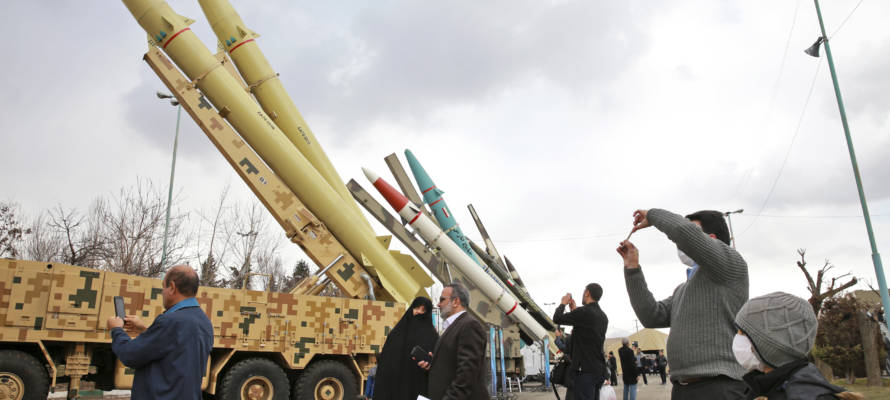What has the Islamic Revolution meant for Israel, the Middle East and the world? What is Iran’s future with the outside world, including the Jewish people?
Iran’s regime recently marked the 40th anniversary of the Islamic Revolution that ended Shah Mohammad Reza Pahlavi’s secular rule in 1979.
What has the Islamic revolution meant for Israel, the Middle East and the world? What is the likely future of Iran and its relations with the outside world, including the Jewish people?
While the secular Pahlavi regime was by no means democratic, it introduced a measure of modernity to the traditional Muslim world. Under Pahlavi, Iran was pro-West and had strong ties with its regional ally, Israel.
Before the Islamic Revolution, Iran was home to a large and affluent Jewish community. Overnight, the new Islamist rulers in Iran severed ties with the Jewish state. Iran quickly became Israel’s arch enemy and embraced terrorism worldwide. Israel’s embassy in Tehran was illegally handed over to the terrorist Palestine Liberation Organization, headed by Yasser Arafat. Most of the Jewish community fled abroad and ended up in America or Israel.
While many Western self-appointed liberals rarely miss an opportunity to harshly criticize Israel, few protest the systematic and serious human rights violations committed by Iran’s Islamist regime. In fact, over the years, Western leftists have defended the ayatollah regime and presented it as a “victim of Western imperialism.” Nothing could be further from the truth.
At its core, the Iranian Revolution was driven by an ideology that embraces racist supremacism, anti-Americanism and anti-Semitism. In an era of Western post-colonialist guilt, Iran’s ayatollah regime proudly embraces Islamist neo-colonialism.
Iran’s Islamist regime has emerged as Israel’s most lethal and radical opponent. The ayatollah regime in Tehran openly calls for Israel’s destruction and rejects Jewish national independence within any borders. Long before the current Iranian-Israeli standoff in Syria, Iran’s Islamist regime was involved in terrorism against Israel, the Jewish people and the West.
Not Just Israel’s Problem
Iran and its terrorist proxy Hezbollah were behind the killing of 241 American and 58 French military personnel in Beirut in 1983. The Islamists in Tehran and their proxies were also behind the terrorist attacks on the Israeli embassy in Argentina in 1992 and on the Jewish community building in Buenos Aires in 1994. Iran was also likely behind the lethal terrorist attack on Israeli tourists in Bulgaria in 2012.
Just like Nazi Germany was not only a Jewish problem, Iran’s Islamic fascism is not merely Israel’s problem. There is a reason why the ayatollah regime demonizes Israel as the “Little Satan” and America as the “Great Satan.” The Islamists hate Israel for both embracing Western values and being the homeland of the Jewish people. The Tehran regime threatens the entire Middle East and much of the world. Iran already has missiles that can reach parts of Europe. It seeks to develop intercontinental ballistic missiles that could eventually reach the US.
Former President Obama’s controversial Iran deal greatly strengthened the ayatollah regime’s ability to carry out its imperialist aggression. However, in the era of President Trump, the ayatollah regime is under great pressure and in gradual retreat. The combination of a powerful US economic embargo and Israeli military strikes on Iranian forces in Syria are seriously undermining the future viability of the Islamist tyrants in Tehran.
The main victims of the Iranian regime are the Iranians. When the ayatollah regime eventually falls, the Iranians will gain their well-deserved freedom and hope for a better future. When that day arrives, Israel, America and the Jewish people will be happy to re-establish strong ties with the proud Iranian people.










